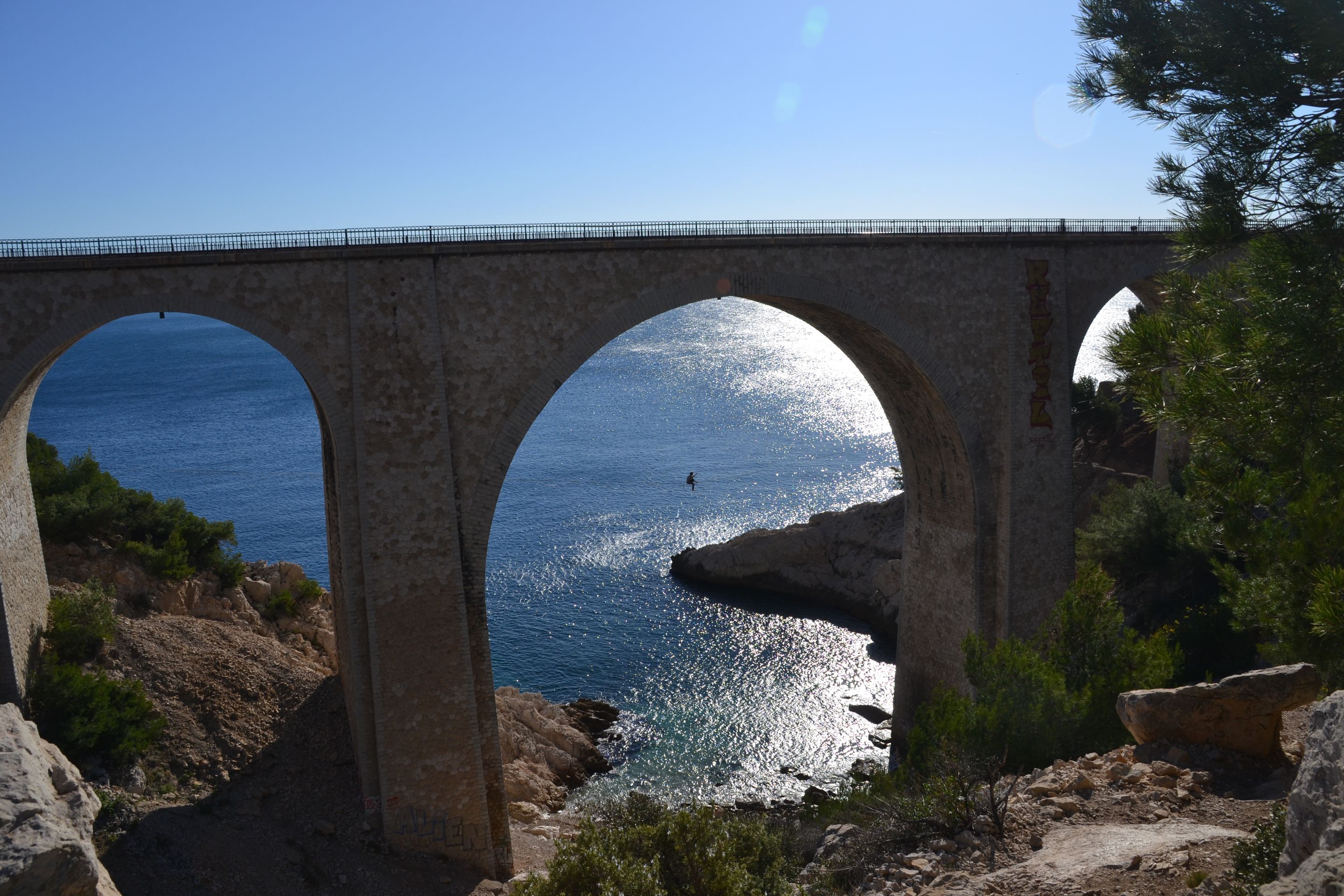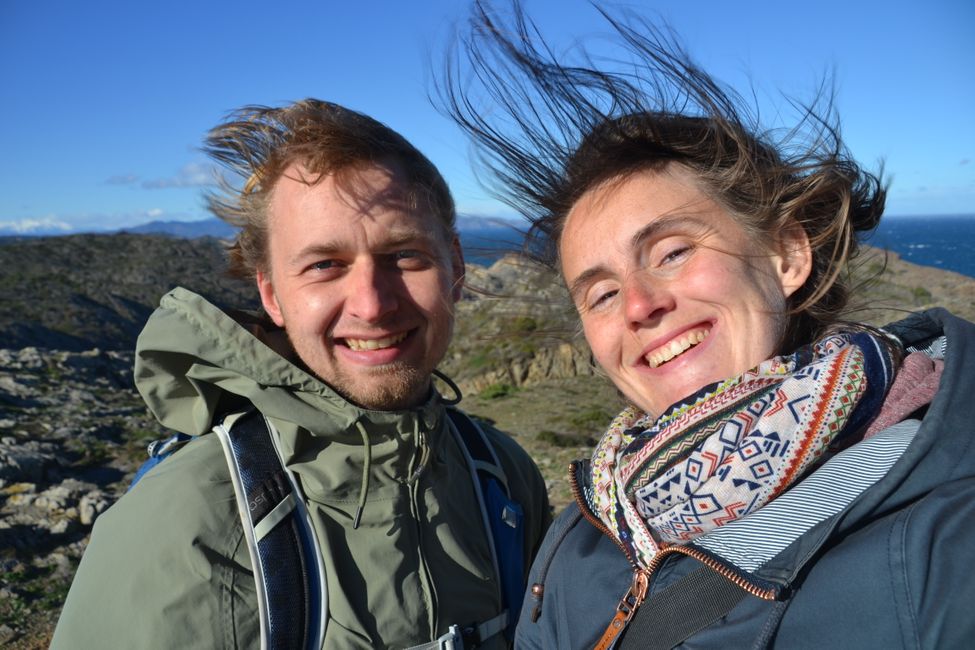#109 Beehive graves and 5000-year-old jewelry.
発行済み: 18.04.2022
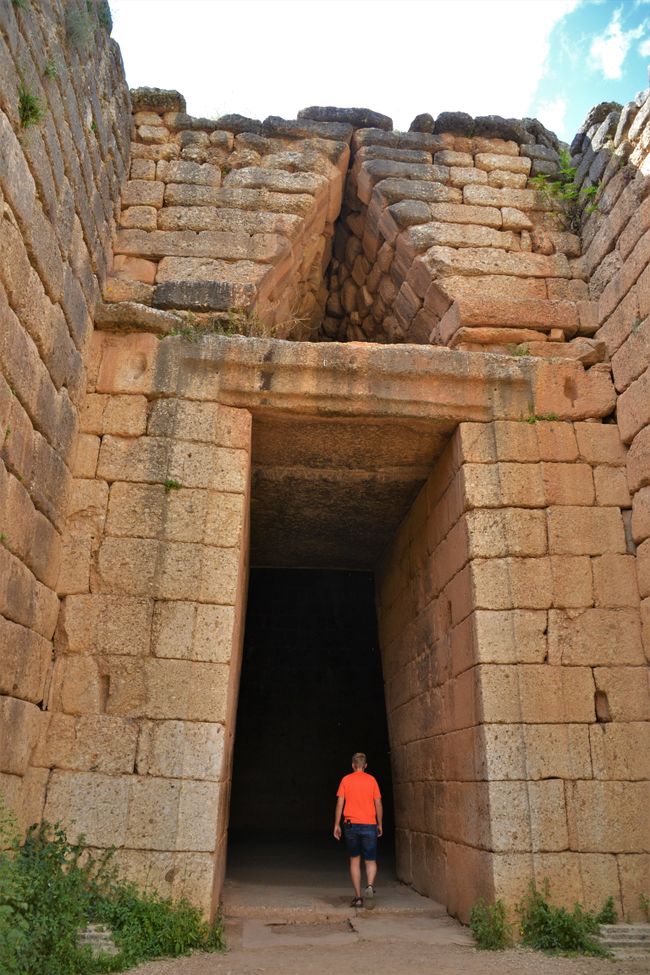
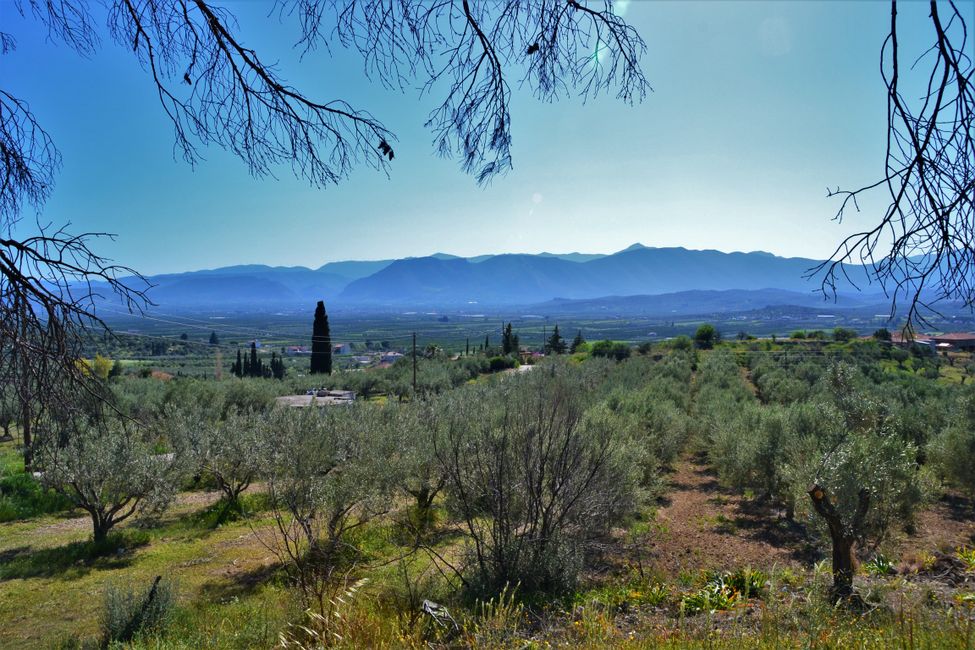
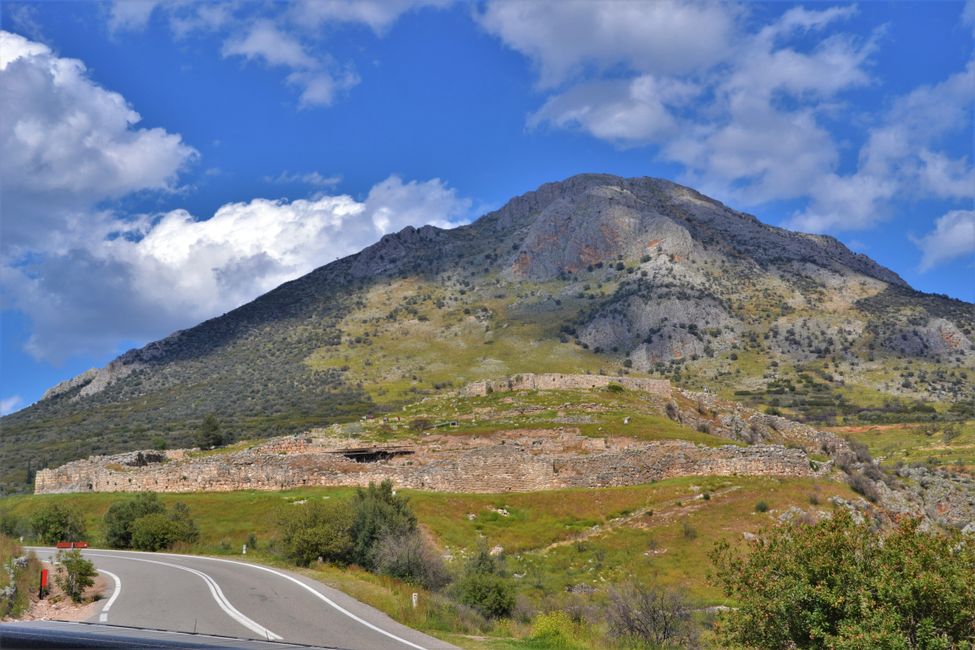
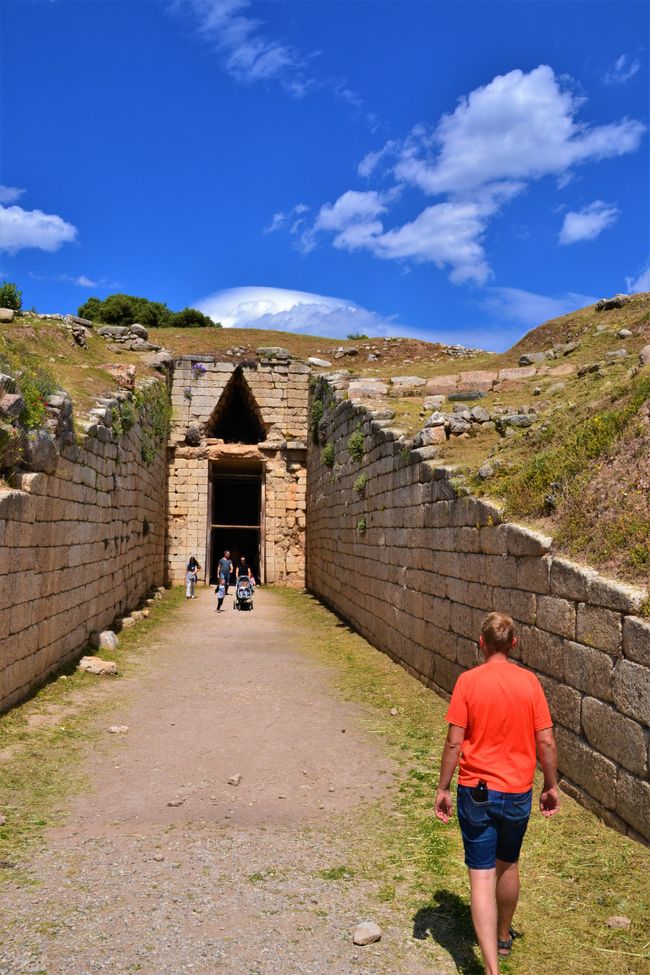
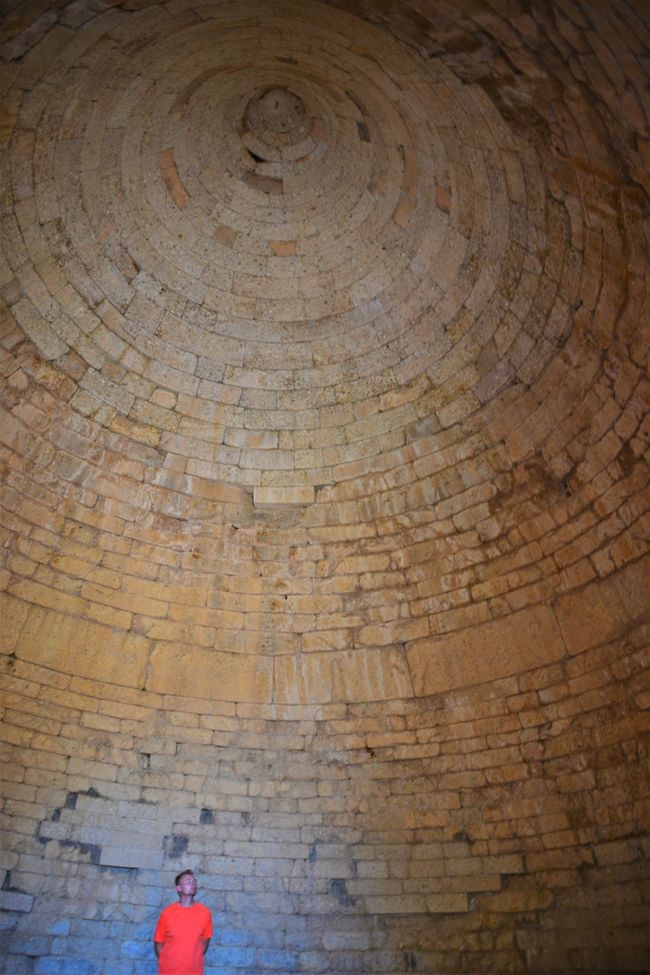
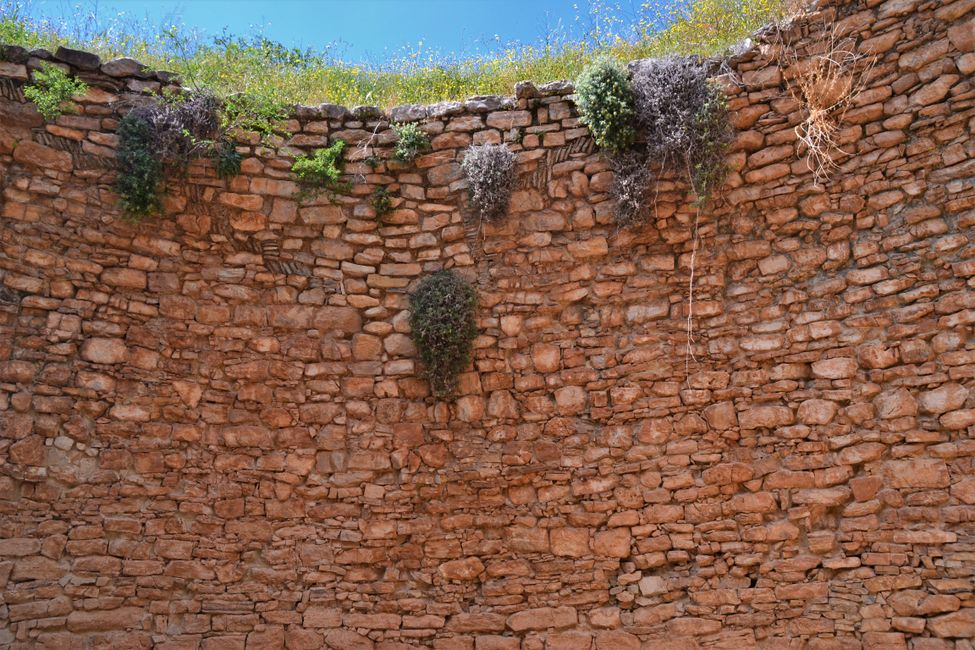
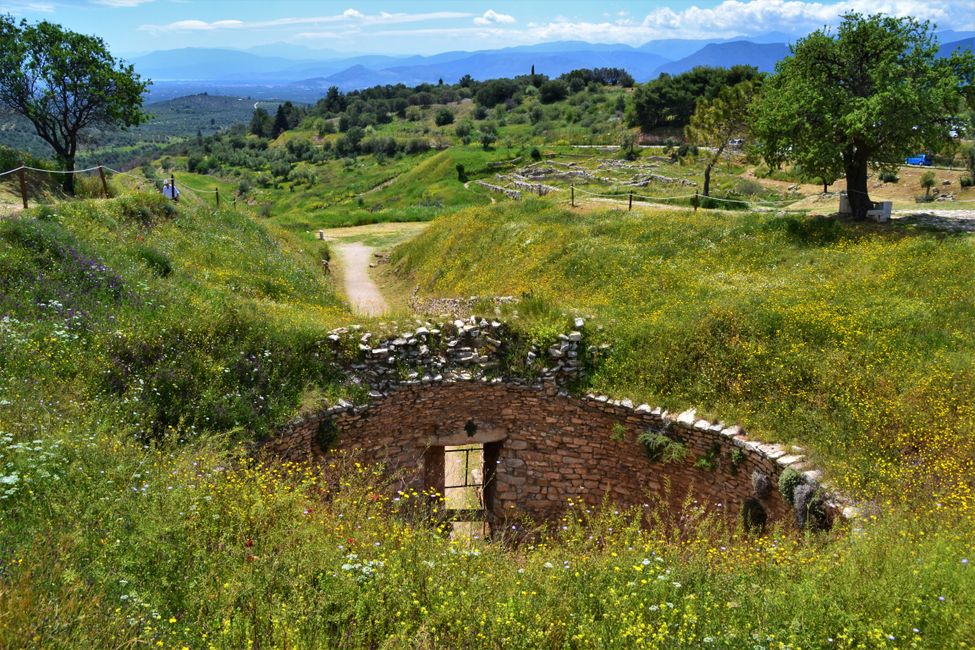
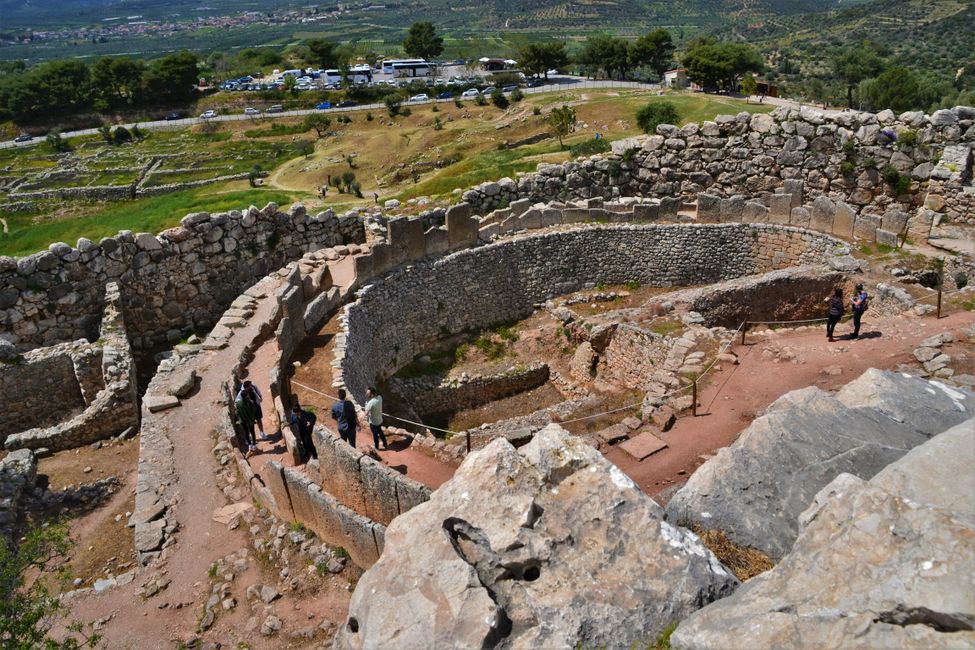
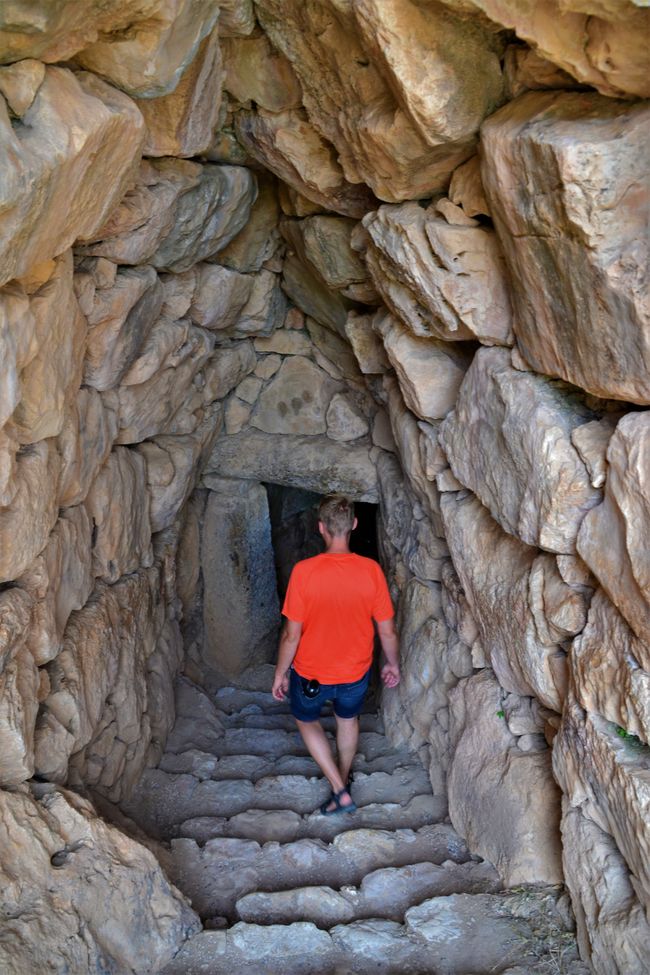
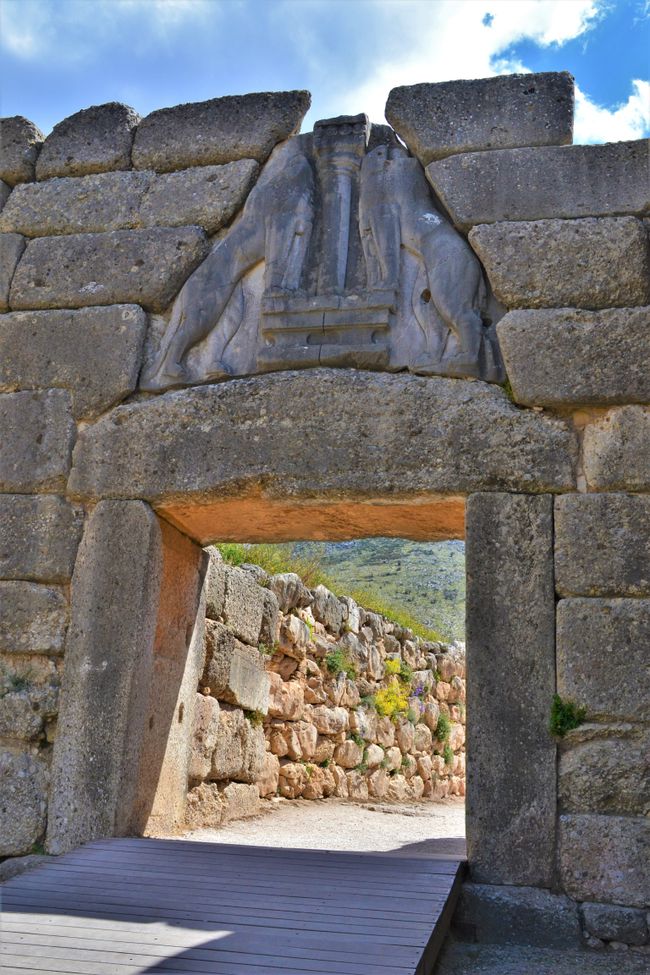
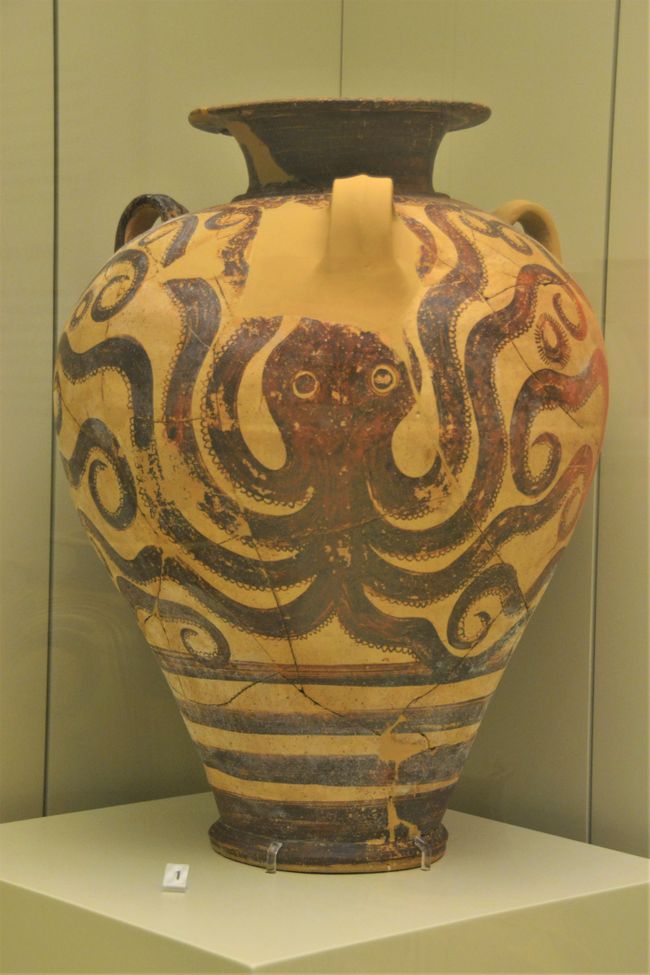
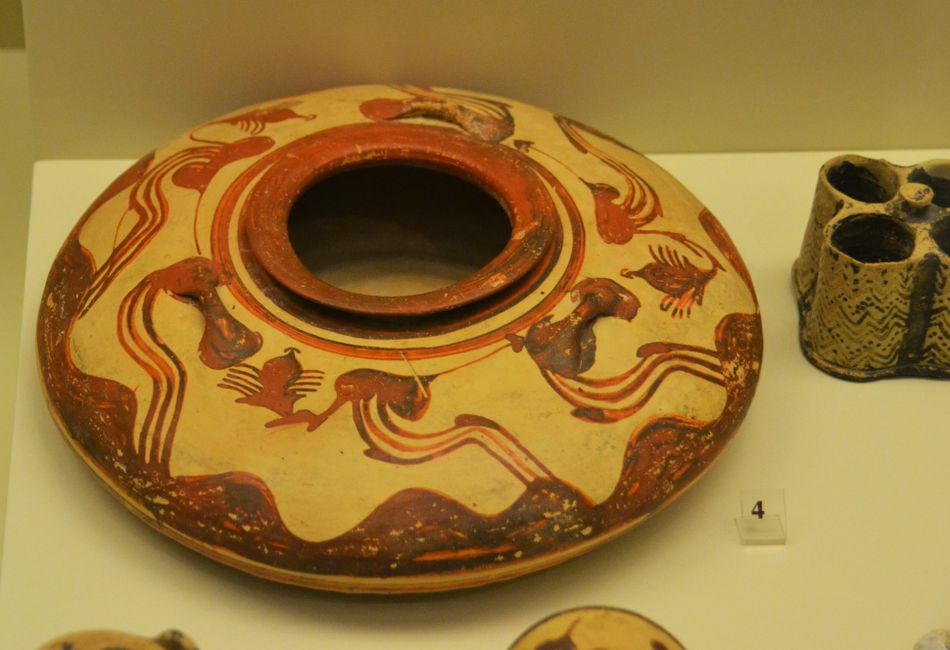
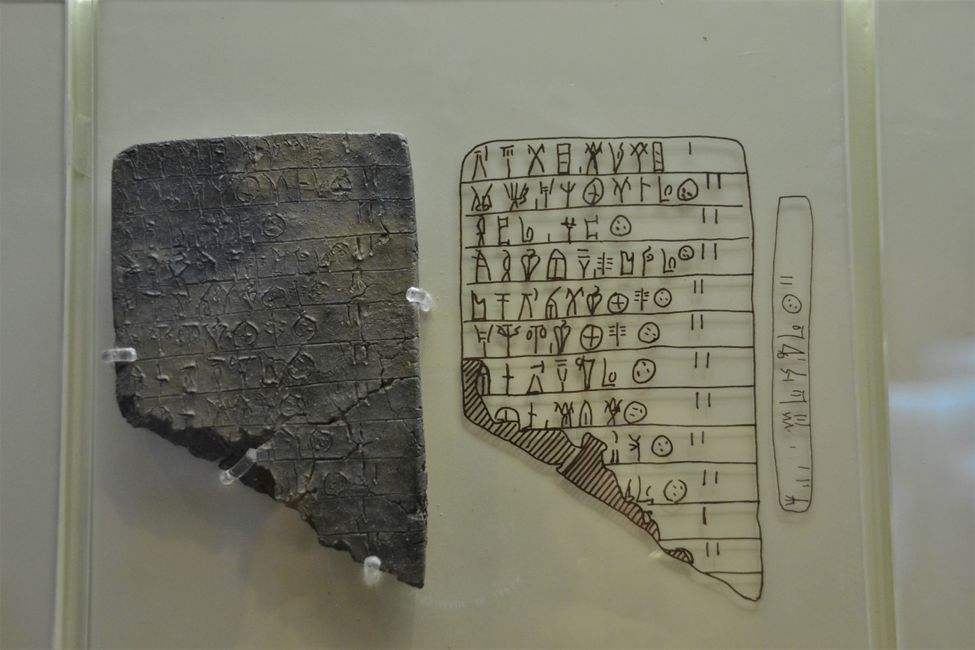
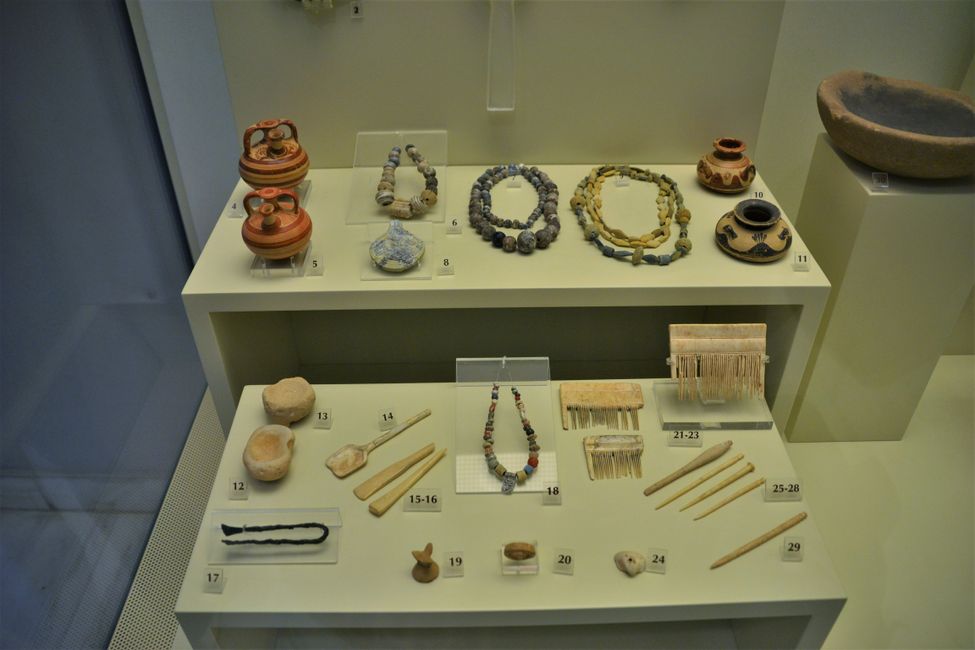
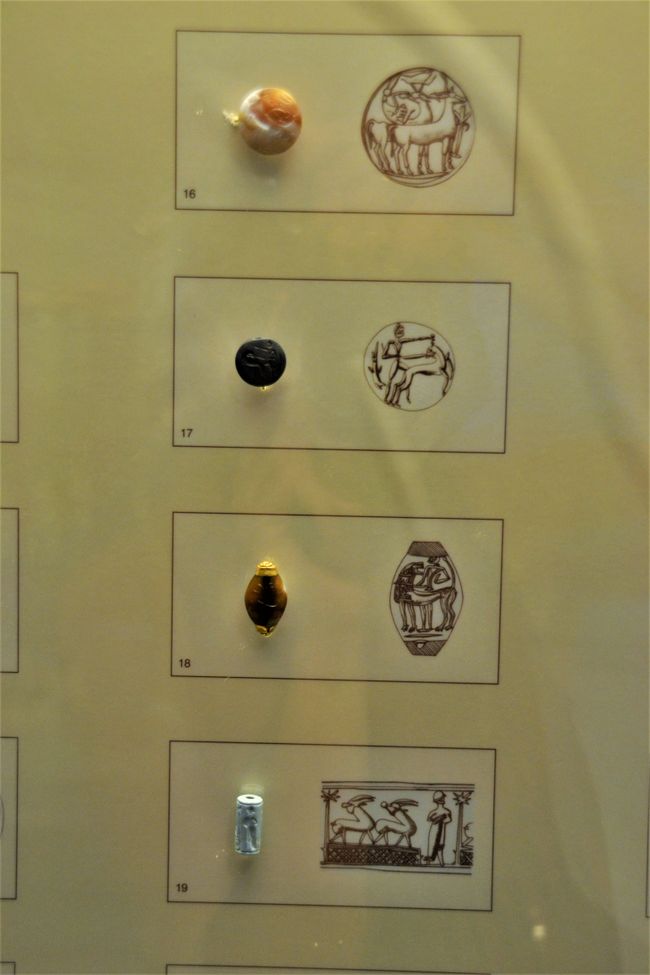
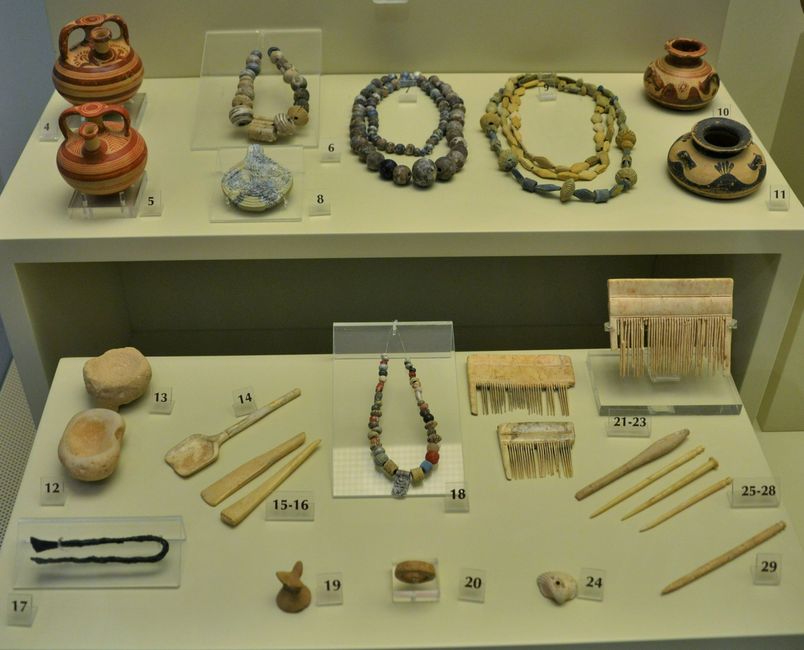
ニュースレターを購読します
April 10, 2022: Mycenae
J. Mycenae was once the most important city in Greece, and even a whole culture, the Mycenaean culture, was named after it. However, that was already 3600 years ago, and now there are mainly many old stones to see here. Nevertheless, I find it interesting to visit a city where people have been living for over 5500 years since the early Bronze Age (before 3500 BC). It's kind of hard to imagine, don't you think?

Mycenae is located on a steep hill and was built around the same time as Tiryns (#107). After the steep ascent, you reach the Lion Gate, the very well-preserved city gate from around 1250 BC (Oldest engraved city gate in the world). Here you pass through the city wall and enter the city of Mycenae, or rather the remaining parts of it.


The heyday of Mycenae was in the 14th and 13th centuries BC, when its sphere of influence extended over half of the Peloponnese and even to Crete. From 1200 BC, the decline of Mycenae began, during which the palace was destroyed (like all palaces in southern Greece at that time). In its place, a temple for Hera was built. Although craftsmanship and art declined to a very low level, the city remained inhabited until the 3rd century BC. So, people lived in Mycenae for over 3200 years. Nowadays, very old cities are often "only" 2000 years old. So, quite impressive!
The Romans apparently also found this impressive because the uninhabited city was already a tourist attraction in Roman times.
I found the graves that are still preserved impressive. Within the city walls, there is a circle of graves, a large number of graves that were all enclosed in a circle with walls.

But even more impressive are the so-called beehive tombs. Several of these graves have been discovered outside the city at the foot of the hill. A long straight path, partly carved into the hill/rock, leads to a wall with a large entrance gate. Behind it is a large burial chamber under the hill. It is round and tapers upwards like a beehive. Interestingly, today there is at least one beehive in each of these graves; apparently, the bees have also recognized the shape. The acoustics in these burial chambers are particularly exciting: if you stand exactly in the middle, every sound is incredibly amplified, so that even footsteps with flip-flops on gravel sound menacingly loud. This would be the ideal place for tap dancing. However, only the person standing exactly in the middle hears this echo.





Mycenae was repeatedly rebuilt and modified, which is why I find the work of the archaeologists very impressive. There is, for example, a cemetery, on the site of which later a worker's quarter with workshops was built. I wonder how the archaeologists can assign their finds to the right time and know whether their find comes from one of the workshops or has survived as a grave offering. In addition, the remains of the palace walls and the later temple are in the same place. If you don't know beforehand that there was a palace and later a temple here, I can imagine the excavations being very confusing. It definitely wouldn't be for me. So my greatest respect to these people who literally reveal our history.
Many of these excavations are exhibited in the adjacent museum. Many pottery items, jugs, small boxes, but also very beautiful jewelry (they had very good taste 3000 years ago). Objects from the entire Mediterranean region have also been found, as the Mycenaeans traded quite extensively.



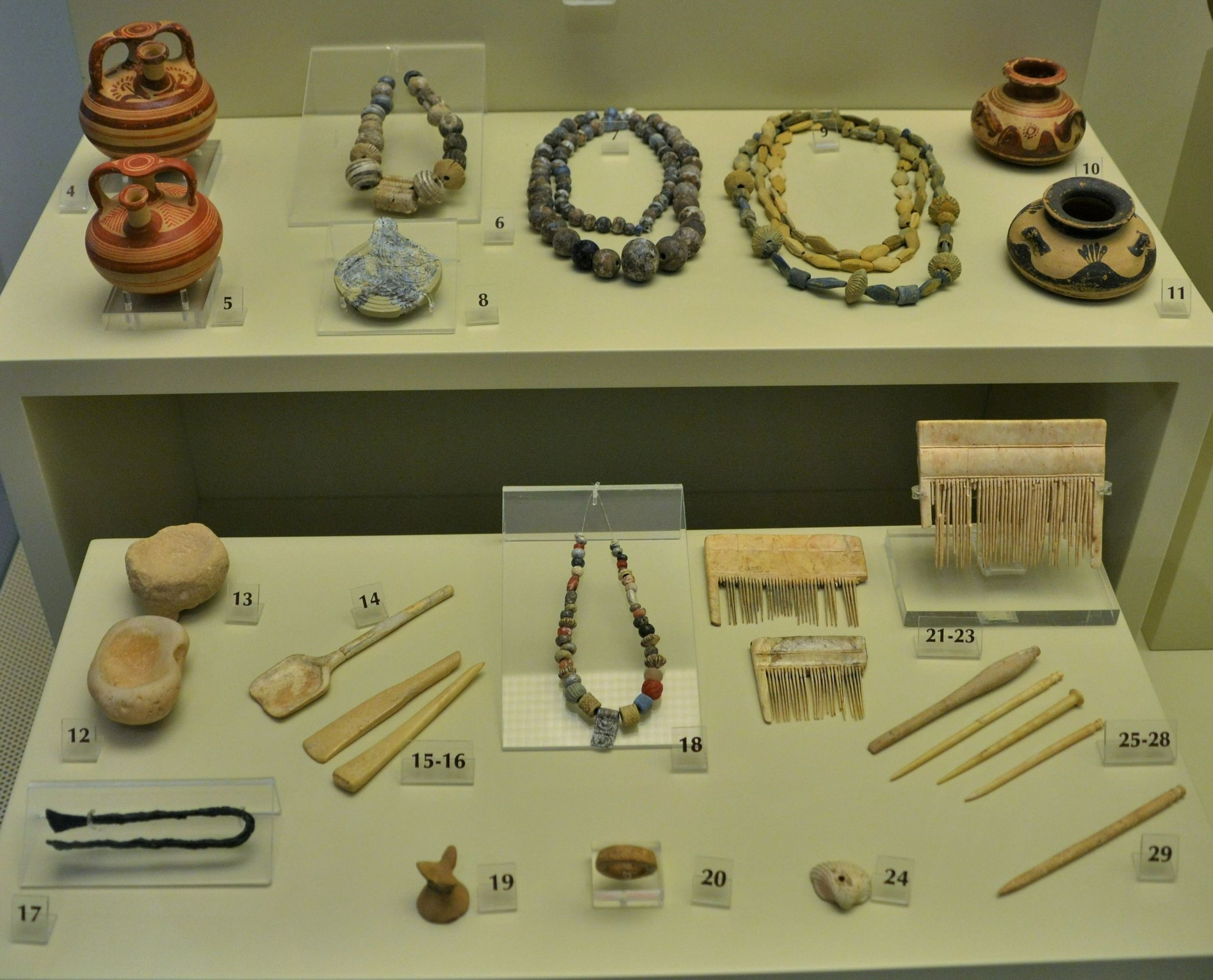

From the city of Mycenae, you have a beautiful view of a wide plain and the surrounding mountains. We also enjoyed this view from our nearby overnight spot in front of an empty restaurant, where we could not only enjoy the view but also the sun.

Day 177 - Total tour 13,658 km
---- Subscribe ----
If you would like to subscribe to our blog, you can either sign up with Vakantio and click on subscribe or send us a message and we will add you to our own distribution list. We are also happy to receive feedback!
Email: querfeld2@gmail.com
ニュースレターを購読します
答え
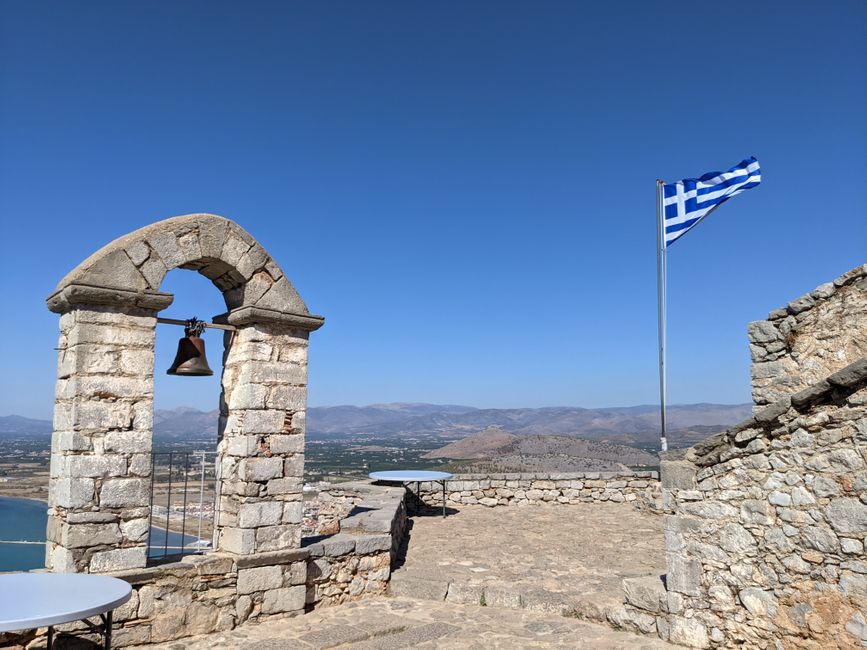
旅行レポートギリシャ
